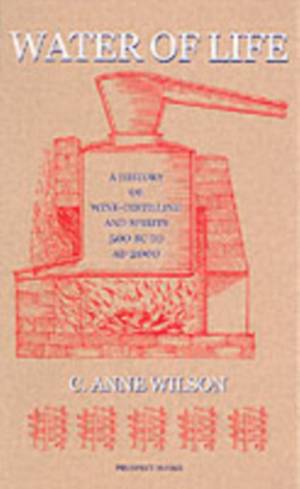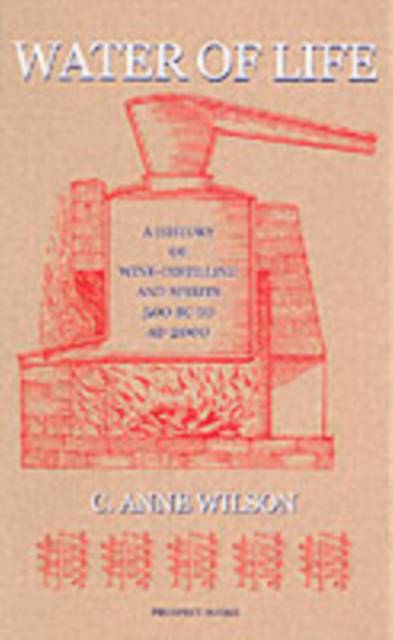
- Retrait gratuit dans votre magasin Club
- 7.000.000 titres dans notre catalogue
- Payer en toute sécurité
- Toujours un magasin près de chez vous
- Retrait gratuit dans votre magasin Club
- 7.000.0000 titres dans notre catalogue
- Payer en toute sécurité
- Toujours un magasin près de chez vous
Water of Life
A History of Wine-Distilling and Spirits 500bc to AD 2000
C Anne Wilson
Livre relié | Anglais
51,95 €
+ 103 points
Description
This is an historical survey of distilling in the Middle East and Europe from the earliest experiments by the Pythagorean alchemists of Ptolomaic Egypt in the fourth century BC to the commerical production of spirits to drink in the British Isles to the year 2000. A pioneer in exploring byways of early history that have been little noticed by previous scholars, the author links the art of distilling to alchemical practice; to the Dionysian cults of ancient Greece and Rome; to the development of the art by the Gnostic mystic Christian sects (who greatly influenced the Coptic church in lower Egypt and Ethiopia); to the researches of the Persians and Arabs; to the preservation of the art by various heretic cults in western Europe such as the Bogomils and Cathars and, of course, the Templars; then into more mainstream development by the medieval and Renaissance alchemists; before comparative relaxation into the domestic history of distilling in England for the manufacture of strong liquor and the making of medicinal and perfumed waters by members of the landed gentry. There are twelve chapters divided into three sections. The first is 'The Ancient and Early Medieval World'; 'The Eastern Mediterranean Region'; 'The Later Middle Ages'; 'Western Europe'; 'From Early Modern Times to AD2000: The British Isles'. While treating extensively of the mystical, cultish and religious origins of distilling, as well as its links to early science, the author looks closely at all forms of distilling in the British Isles. This includes the manufacture of spiritous liquors such as whisky, gin, and others and the central part played in country house domestic life by cordial waters and other distillations manufactured with great skill by generations of housewives as home medicine and perfumery. The book does not treat, at any length, the history of spiritous liquors, including brandy, on mainland Europe.
Spécifications
Parties prenantes
- Auteur(s) :
- Editeur:
Contenu
- Nombre de pages :
- 300
- Langue:
- Anglais
Caractéristiques
- EAN:
- 9781903018460
- Date de parution :
- 20-12-06
- Format:
- Livre relié
- Format numérique:
- Genaaid
- Dimensions :
- 123 mm x 243 mm
- Poids :
- 598 g

Les avis
Nous publions uniquement les avis qui respectent les conditions requises. Consultez nos conditions pour les avis.






